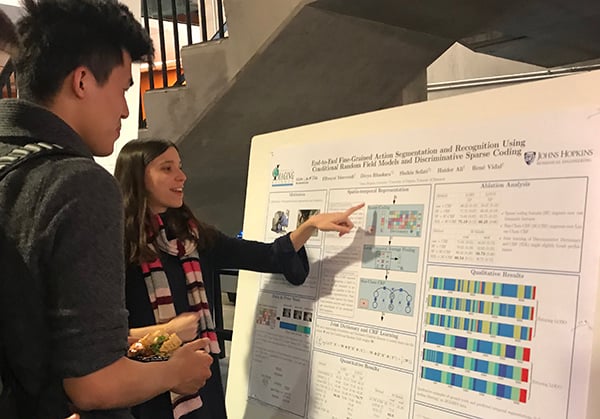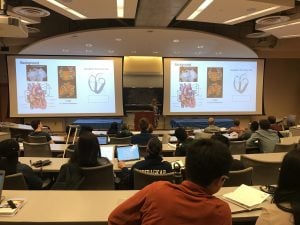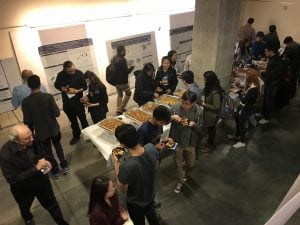Faculty and students of the Department of Biomedical Engineering gathered recently for the Institute for Computational Medicine’s fourth annual Computational Medicine Night in Hackerman Hall. The event attracted more than 100 undergraduate students interested in learning about ICM’s cutting-edge research program and the computational medicine minor offered through the Whiting School of Engineering.
Founded in 2005 as the first research center of its kind, ICM established computational medicine as an emerging discipline devoted to developing quantitative approaches for understanding and treating human disease. Today, ICM is home to 17 core faculty members and nearly 100 students and trainees dedicated to translational research. Through a combination of mathematics, engineering, and computational science, members of ICM build mechanistic models of disease, personalize these models using patient data, and apply them to diagnose and treat individual patients.
“Ten years from now, the role of a physician will be different than it is today,” said Raimond Winslow, Raj and Neera Singh Professor of Biomedical Engineering and director of ICM, who opened the night with introductory remarks. “Going forward, the process of diagnosing disease and determining the best patient therapies will be done computationally, and ICM is going to be a part of that.”



